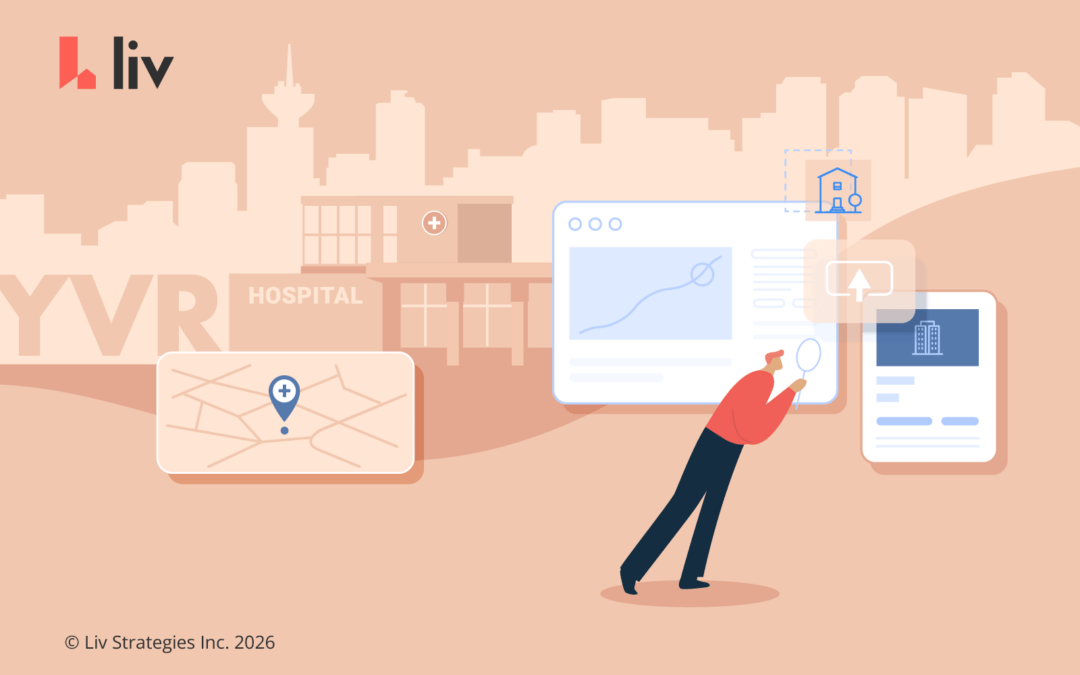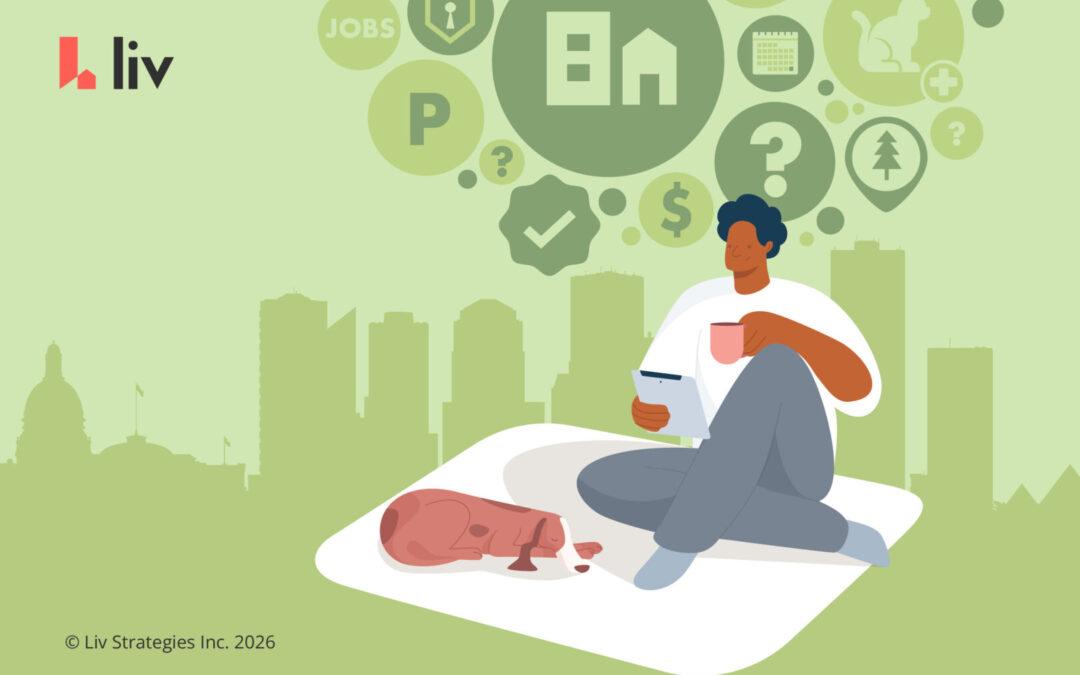When it comes to choosing between renting or buying your home, many Canadians find themselves in a dilemma at some point in their lives. While rent prices continue to get more and more expensive, purchasing real estate is a huge life decision that can be influenced by various factors such as financial stability, lifestyle preferences, and current market conditions. In this guide for renters thinking about buying their first home, liv.rent will carefully dissect the pros and cons of each option, focusing on key considerations aspiring homeowners should take into account.
Rent your perfect home with liv.rent
Search houses, rooms, condos and apartments for rent. Chat instantly with verified landlords. Apply to multiple listings. Save your chat history & signed documents all on one platform.
Pros and cons of renting a house
Pros of renting a house
Flexibility
One of the most significant benefits of renting is the flexibility it offers. With renting, you can easily change your location based on your lifestyle needs or career changes. It’s an ideal choice for those who love to explore new neighbourhoods or cities frequently or are still figuring out their long-term plans.
>> Recommended Reading: The Ultimate Renter’s Guide To Using liv.rent
Lower Upfront Costs
Renting a house often requires less upfront financial commitment compared to buying. Typically, you’ll need to provide the first and last month’s rent and possibly a security deposit. These costs are significantly lower than the down payment, closing costs, and mortgage setup fees required when buying a house.
Fewer Maintenance Responsibilities
As a renter, you’re generally not responsible for the maintenance and repair costs of the property. If something breaks or needs fixing, it’s usually the landlord’s responsibility to handle it. This aspect can save you both money and time.
No Real Estate Market Risk
When you rent, you don’t have to worry about the fluctuations in the real estate market. If property values decrease, it won’t affect your financial situation, unlike homeowners who might see a drop in their home equity.
Cons of renting a house
No Equity Building
The biggest drawback of renting is that it doesn’t allow you to build equity. Your monthly rent payments go to the landlord, not towards owning a piece of property. In contrast, homeowners build equity over time as they pay off their mortgage.
Limited Control Over the Property
As a renter, you have limited control over the property. Any significant changes or renovations generally need to be approved by the landlord. You also might have to deal with restrictions on pets, guests, or even decorating.
Potential for Rent Increases
While rent control laws exist in some areas, there is always a potential for rent increases. Your landlord may raise your rent over time, often annually, which can lead to higher housing costs in the long run.
Pros and cons of buying a house
Pros of buying a house
Building Equity
The most significant advantage of buying a house is the opportunity to build equity. As you pay down your mortgage, you gain ownership interest in your property. This ownership can be a powerful wealth-building tool, as the equity you build in your home can be used for other financial goals.
Stability and Control
Owning a home provides stability and control that renting cannot offer. You’re not subject to a landlord’s rules, and you don’t have to worry about rent increases or eviction. You can decorate, renovate, and alter the property to suit your tastes and needs.
Potential for Profit
If the property’s value increases over time, homeowners can make a profit when they decide to sell. While the real estate market can fluctuate, in the long term, home values have historically risen in Canada.
New First-time Home Buyer GST rebate 2025
Effective May 27, 2025, this fully eliminates the federal GST/HST (up to $50,000) on newly constructed or substantially renovated homes priced up to $1 million, with a gradual phase-out to $0 for homes up to $1.5 million.
- Available for purchases from May 27, 2025, through 2030, and construction must begin before 2031 and complete by 2036.
- Eligibility remains aligned with the standard definition of a first-time home buyer (18+, Canadian citizen or permanent resident, not owned a home in past or spouse in past four years).
- Applies to builder-purchased, owner-built, or co‑op housing.
- Note: Strict anti‑avoidance rules apply—no rebate if original agreement was signed before May 27, 2025.
- Federal legislation currently tabled; awaiting passage and Royal Assent.
Check further details – https://www.canada.ca/en/department-finance/news/2025/05/gst-relief-for-first-time-home-buyers-on-new-homes-valued-up-to-15-million.html
Cons of buying a house
High Upfront and Ongoing Costs
Buying a house requires a considerable upfront investment, including a down payment, closing costs, and moving expenses. Additionally, homeowners are responsible for ongoing costs such as property taxes, homeowners insurance, and maintenance costs.
Less Flexibility
Owning a home means you’re more tied down to one location. Selling a house can be a lengthy and complicated process, making it harder to relocate quickly for a job opportunity or lifestyle change.
Risk of Depreciation
Though generally, houses appreciate in value over time, certain factors like changes in the neighbourhood, real estate market fluctuations, or economic downturns can lead to your home depreciating in value.
Renting vs. buying a house: what’s the better option?
Deciding between renting or buying a house is a personal decision that depends on your financial situation, lifestyle, and housing market conditions. Both options have their pros and cons.
Renting offers flexibility and fewer responsibilities, making it a good option for those with a transient lifestyle or those who prefer not to deal with the responsibilities of homeownership. On the other hand, buying a house allows you to build equity and can be a good investment in the long term, especially if you plan to stay in the same place for many years.
Once you own a home, you also have the option of renting out part of it to help cover mortgage payments and other expenses. With the right tenants, being a landlord can be stress-free and a great source of passive income.
In the end, the best choice will depend on your individual circumstances and long-term goals. Whether you choose to rent or buy, make sure it’s a decision you’re comfortable with and one that fits within your financial plan.
Looking to finance your first home? Until September 4th, 2024, get up to $4,100 cash back on a new BMO mortgage, plus lock in your rate for 130 days – the longest of any major Canadian bank.
See here for details & conditions and take advantage of this amazing opportunity to purchase a new home.
>> Recommended Reading: Landlord Guide: Renting out a room in your house
Renting vs buying a house in Vancouver
The decision to rent or buy can be particularly challenging in expensive real estate markets like Vancouver. With both rent and purchase prices high, many potential homeowners have trouble figuring out which option will cost them less in the long run.
Recent studies suggest that, in the current market, renting might be a financially savvy move in cities like Vancouver. The high purchase prices in these markets can make the costs of buying, such as mortgage payments, significantly higher than renting a similar property.
On the other hand, buying can be a good option if you plan to stay in the house for a long time. While you may pay more upfront and in monthly mortgage payments, over time, you could build substantial equity in your home.
Renting vs buying a house in Toronto
Much like Vancouver, Toronto has faced disproportionately high rent and home prices for the past few years.
Given persistently high mortgage rates in Toronto and the fact that homeownership is frankly unaffordable for many residents, renting typically makes more financial sense – at least in the short term. However, if rent prices and home values continue to rise, homeownership can become a valuable investment strategy for those who plan to hold on to their assets long-term.
As with Vancouver and other cities, renting vs. buying a house in Toronto is ultimately a personal decision that requires careful assessment of a variety of factors such as market rates, and the individual’s financial situation.
Renting vs buying a house in Calgary
Much like Vancouver and Toronto, Calgary has faced an increase in rent prices over the last few months.
Given that rent prices have been steadily increasing in Calgary over the last six months this is not a good sign for renters. It’s not a great market for buyers either at the moment with the mortgage rates at their highest level since 2000. Due to these high interest rates, it is a good time to save your money as you will see favourable returns. For that reason, it is better to rent in Calgary – at least for now.
It is important to note that this is a very personal decision and you should take into account a variety of other factors before making your decision.
Renting vs buying a house in Edmonton
Edmonton’s rental market has fluctuated up and down over the last six months but it remains one of the cheapest rental markets of Canada’s large urban centres. You can rent a one-bedroom unfurnished apartment in Edmonton for up to $600 less than in other major cities like Toronto. For this reason, combined with the current high interest rates making mortgages expensive it is best to rent in Edmonton at the moment.
Although the Edmonton rental market is significantly cheaper than other urban centres in Canada the city still offers plenty to its residents. There are some great places to find cheap rent that have sprawling green spaces, access to fantastic shopping opportunities and fantastic infrastructure. So don’t be mistaken by the low rental prices, Edmonton is still a great place to live.
FAQ: Renting vs. buying a house
Which is better: buying or renting a house?
When considering whether to buy or rent a house, it’s essential to weigh various factors such as financial stability, lifestyle preferences, and long-term goals.
Buying a home offers the potential for equity accumulation and stable housing costs over time, but it requires significant upfront expenses like down payments and closing costs. Renting, on the other hand, provides flexibility and fewer financial obligations, making it suitable for those prioritizing mobility or uncertain about future housing needs.
Is it worth buying a house in Canada?
Deciding whether purchasing a house in Canada is worthwhile depends on multiple factors that vary from person to person. While Canada’s real estate market historically appreciates, the decision’s worthiness hinges on market conditions, personal finances, and long-term housing objectives. Prospective buyers should conduct thorough research and carefully consider these factors before making a decision.
What are the disadvantages of renting?
Renting has its drawbacks, including the inability to build equity through rent payments, the risk of rent increases, and limited control over the property. Renters may also face restrictions on customization or personalization of living spaces, impacting their sense of home ownership and long-term stability.
What are the top three reasons to buy a home?
Individuals purchase homes for various reasons. Homeownership allows for equity building over time through mortgage payments, stability in housing costs, and the potential for property appreciation. These factors contribute to a sense of security and long-term financial stability for homeowners.
What are the cons of real estate?
Real estate investment carries certain risks, including market volatility, ongoing maintenance costs, and the potential for unexpected expenses such as repairs or vacancies. These factors can impact the profitability and stability of real estate investments, requiring investors to carefully assess and manage risks.
Does owning a home give you an advantage?
Owning a home can provide advantages such as equity building, potential tax benefits, and the ability to customize living spaces. Homeownership offers a sense of pride and stability, allowing individuals to establish roots in a community and create a space that reflects their lifestyle and preferences.

Rethink The Way You Rent
Not on liv.rent yet? Experience the ease of digital applications & contracts, verified tenants & landlords, virtual tours and more – all on one platform. Sign up for free or download the app.
Subscribe to receive the latest tenant & landlord tips and get notified about changes in the Canadian rental market.
>> Stay up-to-date on the average rent in Vancouver, Toronto and Montreal: Rent Reports.




0 Comments